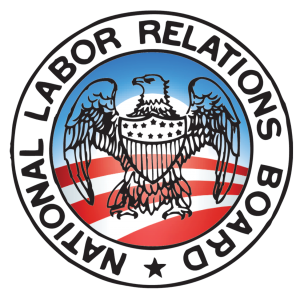
Other recent proposals have aimed narrowly at reining in the Board’s action attempting to bar Boeing from building a manufacturing facility in South Carolina. As horrendous as the decision by the Board to pursue that case was, it is only a symptom of the problem — which is that the agency has far too much power to boss private companies around in the first place.
Originally founded in 1934 by Executive Order 6763 from Franklin Roosevelt pursuant to the National Industrial Recovery Act of 1933 — which was later found unconstitutional by the Supreme Court, prompting Congress to pass the National Labor Relations Act of 1935 — the Board has resulted in a far-reaching expansion of labor organizations in the U.S. How?
The whole purpose of the Board was to help facilitate the unionization of unwilling employers, with the NLRB acting as a supposedly “neutral” arbiter. In reality, Congress and Roosevelt had created a quasi-judicial agency to act as prosecutor, judge, and jury in disputes against employers by labor unions.
In that sense, the law and the Board were designed to more easily compel Americans to join unions. If that sounds to you like a corrupt deal struck between a special interest and government to perpetuate that interest group — in this case labor unions — you’d be right.
And in its 75 year history, that is pretty much how it has acted.
In fact, depending on the composition of the political appointees of the Board — comprised of up to five members all chosen by the President, subject to Senate confirmation — individual decisions can favor unions or employers. But the system is clearly weighted on the side of the unions, since the principal presumption is on the side of facilitating union organization.
To focus in on its supposed neutrality, two of the most recent decisions by the Board — Lamons Gasket Co. and UGL-UNICCO Service Company — overturned decisions that were made when the Bush Administration was responsible for the agency’s composition. Those decisions in turn had overturned Johnson and Clinton Administration NLRB rulings, respectively.
Although both of the new decisions once again make it harder for employees to challenge a union’s status under certain circumstances, the point is that none of the decisions in these cases were actually neutral. Instead, the decisions of the Board appear to have been custom-tailored to suit the political preferences of whatever Administration was in power at the time.
That makes the Board’s rulemakings very inconsistent and pretty much arbitrary. Perhaps that is why 55 percent of respondents in a recent survey conducted by the polling company™, inc./WomanTrend on behalf of Americans for Limited Government thought it was a bad idea that the Board “is governed by five political appointees whose terms last four years”.
Under Rep. Austin Scott’s proposed legislation, federal courts would now be responsible for hearing these cases — resulting in a more consistent approach to labor law.
Some critics have charged that the bill would eradicate the NLRB, but it must be noted that the agency would still be responsible for holding and monitoring unionization elections and would still be able to investigate alleged violations of worker’s rights.
However, the law will take prosecution of those violations out of the political arena and the bureaucracy, and put them directly where they belong — in courts of law.
Bill Wilson is the President of Americans for Limited Government. You can follow Bill on Twitter at @BillWilsonALG.






